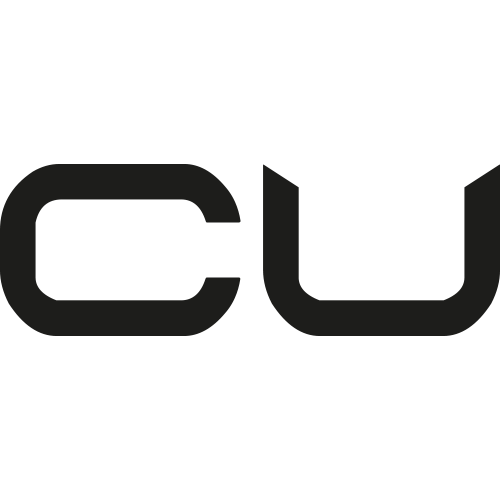Matthew Loots has been at the heart of South Africa’s electronic music scene for the last two decades. As one of Cape Town’s most recognizable DJs he was playing the cities premiere venues such as Unity, Pure, Detour, 55 and Stylish Affair at the age of 16. We had a chance to catch up with him on the cusp of a new EP for Ryan Sullivan’s Triplefire Music.
Hi Matthew, thanks for joining us, tell us where in the world you are today and what’s on your agenda for the week?
I’m at home in Cape Town this week, some public holidays coming up in South Africa and spending some downtime with my family over the long weekend, checking out some new venues around town too.
How did you discover electronic music and what led you down the path of wanting to be a DJ and producer? Where do your early influences lie?
I was always musical and loved playing guitar from an early age, One day my mother returned from England with a tape of Shamen’s “Boss Drum” and I was so intrigued with this new sound, I subsequently discovered the Prodigy and went onto fall in love with the sounds of Sasha, Digweed, BT and Hybrid – There was this golden few years in progressive house around the turn of the millennium that was really special and I immersed myself in that.
How did growing up in South Africa shape your path as an artist? How much has it influenced your sound, and your approach to producing music? Or did it at all?
Musically I’ve always been into my own thing – while I did African Ethos at school and learned some of the traditional instruments , I’ve been following trends from everywhere I can and wasn’t too localized in my musical development. What has shaped me growing up in South Africa is the diversity and the contrast we have here. I have always tried to understand people and where they are coming from.
What is the scene like in South Africa? Tell us about the night life there.
I think the nightlife has it’s ups and down in Cape Town with the current scene looking relatively good with some great new venues that have shown up over the last year, while summertime festivals have boomed here over the last few years. Johannesburg has more of a consistent club scene, but regardless we’ve definitely received a lot more international heat over the last few years and it shows with the increased amount of big names gracing our shores.
What is truly impressive though is the producer scene, the quality has really increased over the last while with very healthy level of competition, some great music is coming out of South Africa. How could the scene be improved?
I think the scene could do with some definition in roles – the marketing and promotion should be more separate to the performance and musicality. But I think this is a global phenomena with the rise in social marketing globally.
Tell us a bit about your studio, what are some of your go to pieces of gear or software? How do achieve your sound?
My studio is very simple – Heavily desktop based , but I love to use my guitars in my music where it works. As far as my go-to elements, I love Omnisphere and enjoy using Kontakt samplers in conjunction with effect plugins to create interesting textures and grooves.
Your first productions came out in 2013, how has your sound changed over the last five years?
My first production actually came out on Agave records in the U.S. in 2006 under the moniker BangBang – an outfit I started with Matt Prehn. Back then we were producing Live-influenced funk and soon after created a live act along with Reuben John on vocals. We went on to release on Lost My Dog, Kolour and Myna among others. Since then, the act disbanded in 2010 and I decided to focus on my solo productions. I returned to my earlier influences and went back to a more progressive sound, but coming from such an accessible funk-driven sound it took me a while to find my feet again and have been slowly integrating the love I have for instrumental musicality with groove and dance-floor sentiment.
How much of an influence is music outside of electronic spectrum?
I listen to a lot of music outside the electronic spectrum, I enjoy a bit of everything as long as its well put together. I enjoy Rock, Blues, Jazz and Hip-hop (while I’m very picky with it). Mostly when listening in the car or wherever, I like melody-rich , chill-out style music that doesn’t always fit into a genre.
You have a new EP out this week on Triplefire Music, tell us about the inspiration behind the EP and the production process behind the lead track ‘Flashpoint’.
The inspiration behind this EP is contrast, where Flashpoint is more of a peak time thumper and far more focussed on the percussion and groove, Luminous is the flip side where more effort was put into the melody lines and chord progression.
The process behind Flashpoint was born out of a groove I found in one of my soft-synths, I wanted to keep that driving groove was the focal point throughout and maintain the raw energy while flowing through the different sections. So a lot of effort was it into maintaining the groove of the track while still giving it enough movement, alot of single hit placements and even some vocal percussion.
You’ve released almost all your music on Triplefire Music, what is it about hte label that makes it such a comfortable home for you?
Well, I love the vision Triplefire has and I’m close friends with the owner Ryan Sullivan. I feel that the music industry is very all over the place at times and I find it comforting that there is a label that echoes my values in music and that I can trust my music will be looked after with care – which is hard to find these days.
Tell us about a typical day in your life. Do you have any set routine?
Well I have two beautiful children, so It usually involves me being woken up by my 3 year-old quite abruptly and we watch some morning cartoons together over breakfast, joined shortly after by my 13 year old daughter. Then depending on whether its a work day or not (I am a UX/UI Designer during the day) I either drop my kids at school and go to work – or my wife and I find something fun to do with the kids. Night-time is mine where I work on my music and other projects or go out and play gigs.
Who are some up and coming South African artists to look out for?
Loving the work Enoo Napa is putting out there, Beebar, Ryan Sullivan is consistently strong with his output, Sadhu Sensi is doing some amazing downtempo stuff and Damian Yoko is another one to look out for.
What are the biggest challenges that you currently face in the industry as an artist and a label owner?
I find the marketing/PR side of music to be quite a challenge these days, with the industry being so saturated it’s difficult to get through the masses to get the right people to hear your music.
Lastly, what else can we expect to hear from you for the remainder of 2018?
I have a few tracks I’m finishing off that I’m quite excited about and I’ll be starting work on a debut album later this year.
‘Flashpoint’ is out now on Triplefire Music, you can purchase the release: here




